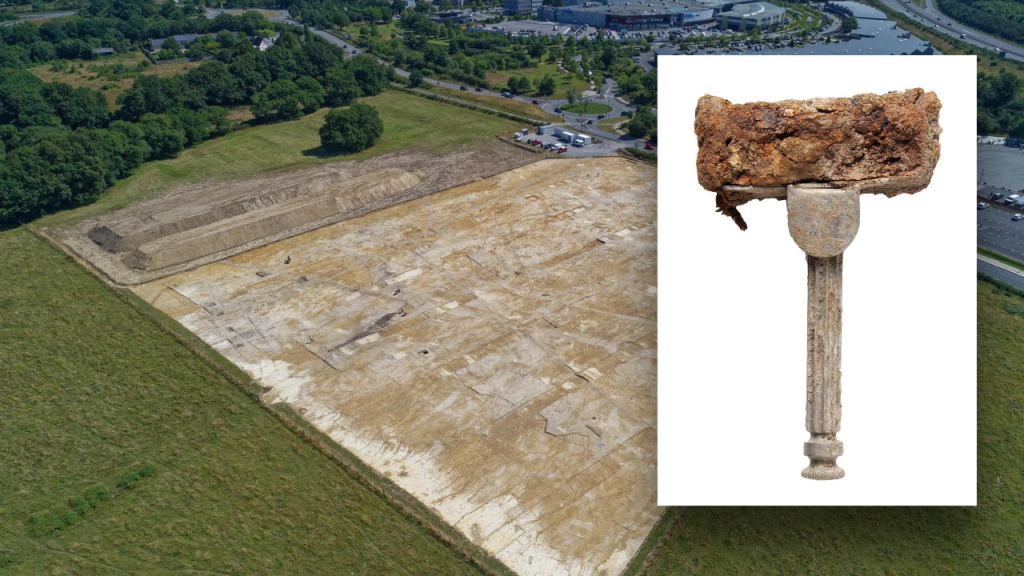French archaeologists recently discovered the remains of an American hospital dating back to World War I in a town called Savenay in the region of Pays de la Loire in northwestern France. The hospital was built so that American soldiers no longer needed to rely on French hospitals, with several hundred hospital structures being built across the country. Pictures published by the National Institute for Preventive Archaeological Research (INRAP) show that archaeologists found various artifacts such as medical bottles, combs, buttons, and a smoking pipe during the excavation.
The hospitals were strategically placed near the ports of Nantes and Saint-Nazaire for easy connection to main French rail lines, with the first American soldiers arriving in France in June 1917. The site of the hospital was divided into two distinct parts: one was a fenced area built to protect the hospital, while the other was composed of 20 “dump pits” that held both construction waste and artifacts. Archaeologists found proof of a water pipe network that delivered clean water to the hospital complex, similar to other American hospital complexes during World War I.
The dump pits delivered the majority of the archaeological furniture found at the site, testifying to a certain homogeneity in their digging and filling processes. The press release from INRAP explained that these dump pits were mainly composed of construction waste. The excavation of the American hospital site was used as an opportunity to teach high school students about preventative archaeology, offering numerous research perspectives for further study. An exhibition about the project will be unveiled on Thursday, demonstrating the importance of preserving historical sites for future generations to learn from.
In addition to the artifacts found at the hospital site, archaeologists also discovered a medical clamp, a razor, a watch case, various cups, and a pair of shoes. The site was described as functioning like a “real autonomous city,” with individual sewage networks and sometimes even its own railway service. The discovery of the American hospital complex sheds light on the infrastructure and organization of medical facilities during World War I, highlighting the efforts made to provide care for injured and sick soldiers in France.
The excavation of the American hospital site in Savenay provides important insights into the history of medical facilities during World War I. The discovery of artifacts such as medical bottles, combs, and buttons offers a glimpse into the daily life of American soldiers receiving care at the hospital. Additionally, the organization of the hospital complex as a self-sustaining city showcases the efforts made to provide essential services and care to soldiers during a time of conflict. The exhibition about the project will provide further details about the excavation and its significance in understanding the impact of World War I on medical practices.


